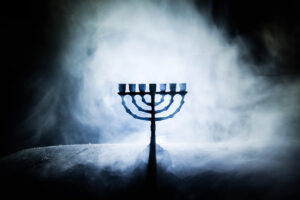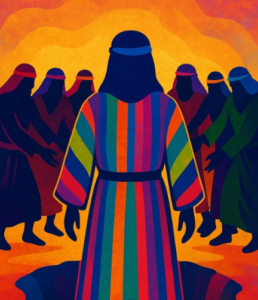Back to “Normal”
How was your Yom Tov? Mine was wonderful. First I experienced the awesome spiritual heights of being in Uman for Rosh HaShanah, then the solemn upliftedness of the holiest day of the year, Yom Kippur, and then eight joyous days together with my family in the sukkah.
But the Sunday after was very difficult. Besides all the schlepping, like taking down the sukkah and cleaning up after Yom Tov, life was rapidly returning to “normal.” Granted, I am fortunate enough to work for BRI and spend my time doing my best to share the Rebbe’s Torah with the masses; nevertheless, my job is as pressured and stressful as any other. I have deadlines to make, financial obligations to keep, and a multitude of issues always certain to spring up. This got me wondering: Is Tishrei (the current month of festivals) a kind of once-a-year Jewish Oktoberfest, or does its placement at the start of the year indicate its crucial relevance and influence?
As difficult as it is to build a sukkah, Noah’s Ark was a far greater feat. For 120 years, Noah toiled at building this massive structure. Why was he asked to build something for so long? Picture your neighbor working around the clock, erecting a giant tower. Would your curiosity not overcome you to ask, “What in the world are you doing?” God gave Noah a massive building project in order to make headlines. This would guarantee that he be swamped with interviews and have ample opportunity to encourage mankind to do teshuvah.
The Zohar (Hashmatot, Bereishit 254b) teaches that after the flood, Noah witnessed the destruction of the world and began to cry. He said, “Master of the world, You are called compassionate. Why were You not compassionate for Your creation?” God rebuked him, “You foolish shepherd! Now you say this?”
For even after toiling 120 years, Noah was not able to bring even one Jew back to God. It wasn’t that Noah was lacking in piety. Quite the opposite – he was a tremendous Tzaddik. But he was lacking in his ability to perceive God’s absolute compassion. It was therefore most fitting that he be saved by being sealed in a box. Noah could not have remained on earth, for he was unable to relate to those who had fallen away from God and holiness. He could exist only in an artificial spiritual environment. The Zohar (Tikkun #21, p. 54) thus compares the Ark to Yom Kippur, and points out that the Ark came to rest during the seventh month – Tishrei!
Over the past Tishrei, we were blessed to be engaged in one spiritual endeavor after another. Hopefully, we became more aware of our connection to God and the existence and abilities of our special neshamot (souls). However, just as we left our Jewish homes, the pinnacle of holiness, for the outdoorsiness of the sukkah, so too, we must leave behind the High Holidays season and rejoin “normal” life. Yet the sukkah taught us a tremendous lesson: Just like its sechach-roof, God is hovering over us always. His compassion is never-ending.
We have proven that we can ascend to great heights, and that we are active members of God’s great nation, but can we also go beyond Noah? Can we serve God when He is hidden? When we begin to grasp His true greatness and compassion, we can begin to truly serve Him in whatever situation we find ourselves. God’s greatest desire is not for us to have a relationship for a month or two a year, but to get to know Him every day, in every facet of our lives. This is the challenge and greatness of every Jew. May we all merit a joyous year of true closeness with God. Amen!
Based on Likutey Halakhot, Hilkhos Shabbat 7
- 0 comment






















